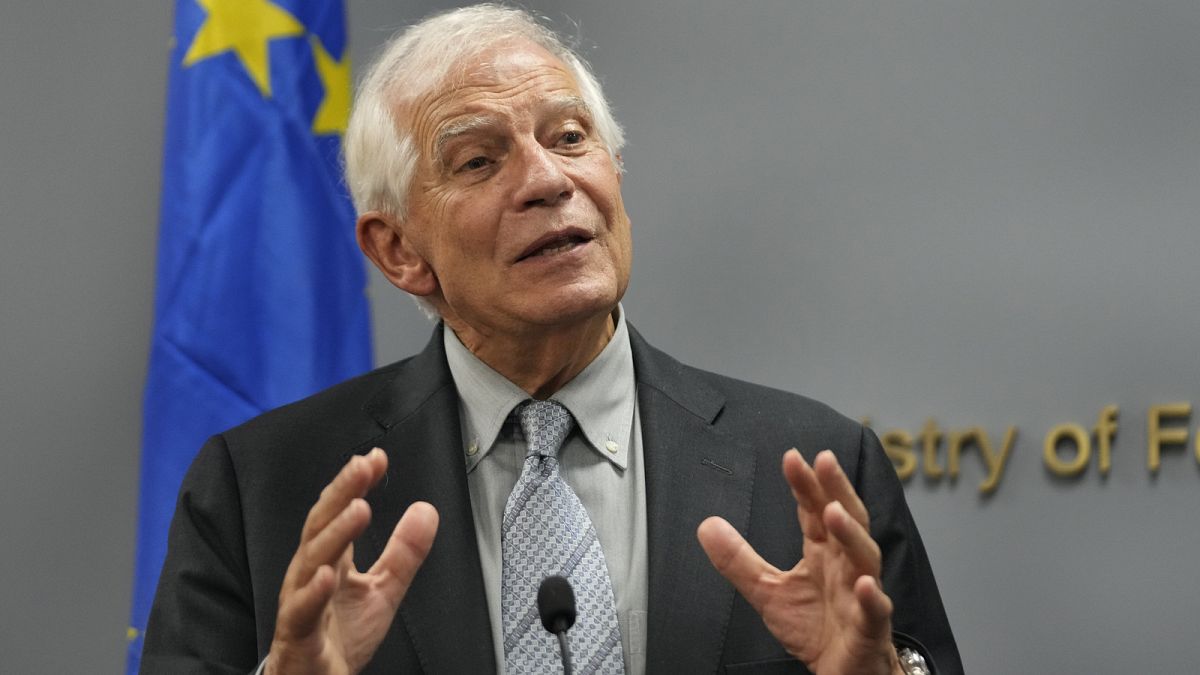The European Union’s foreign ministers have issued a call for an immediate ceasefire between Hezbollah and Israel due to Israel’s aggressive actions, including a potential ground invasion into Lebanon. The EU has expressed concerns about the risk of further conflict escalation in the region and has urged all parties to exercise restraint and prioritize diplomacy. The bloc emphasized the need for arms to be silent and for the voice of diplomacy to take precedence in resolving the crisis. The EU’s caution follows Israeli defense minister Yoav Gallant’s announcement of the upcoming “next phase” of Israel’s war against Hezbollah.
The EU’s top diplomat, Josep Borrell, stressed the importance of guaranteeing the sovereignty of both Israel and Lebanon to avoid a further deterioration of the situation. French foreign minister Jean-Noël Barrot also called on Israel to refrain from any ground incursion and urged Hezbollah to stop firing. The EU held an informal ministerial meeting via video call to discuss the escalating conflict, but no concrete decisions were made regarding the bloc’s response. The discord among EU countries’ positions on the Middle East conflict since the war in Gaza last October has weakened the bloc’s diplomatic influence in the region.
Israeli strikes on Lebanon, including targeted assassinations of Hezbollah officials and attacks on Iran-backed militants, have forced as many as one million people to flee their homes, with thousands seeking refuge in neighbouring Syria. The EU has expressed its support for the fragile Lebanese government and has allocated €10 million in additional humanitarian aid to assist those affected by the conflict. Efforts are being made to provide critical medical supplies and equipment to Lebanon, which is facing a deepening economic crisis and political instability exacerbated by Hezbollah’s presence in the country.
The international community has scrambled to prevent the conflict from spiraling out of control, with Israel escalating its offensive and targeting key Hezbollah infrastructure in civilian areas. Prime Minister Benjamin Netanyahu is expected to convene his security cabinet to discuss the situation further. The EU has pledged to continue its support for Lebanon’s state institutions, which are at risk of collapsing, emphasizing the importance of electing a new Lebanese president to ensure stability in the country. The ongoing humanitarian crisis in Lebanon, exacerbated by the conflict, underscores the urgency of diplomatic efforts to achieve a lasting ceasefire in the region.
In conclusion, the EU’s call for an immediate ceasefire between Hezbollah and Israel reflects growing concerns over the escalating conflict in the region. The bloc has emphasized the need for diplomatic solutions and restraint from all parties involved to prevent further deterioration of the situation. Efforts are being made to provide humanitarian aid to Lebanon and support its fragile government amid the ongoing crisis. The discord within the EU regarding the conflict has weakened the bloc’s diplomatic influence in the Middle East, underscoring the need for a unified approach to addressing the crisis. As the conflict continues to intensify, international efforts to de-escalate tensions and promote peace remain critical in ensuring stability in the region.











